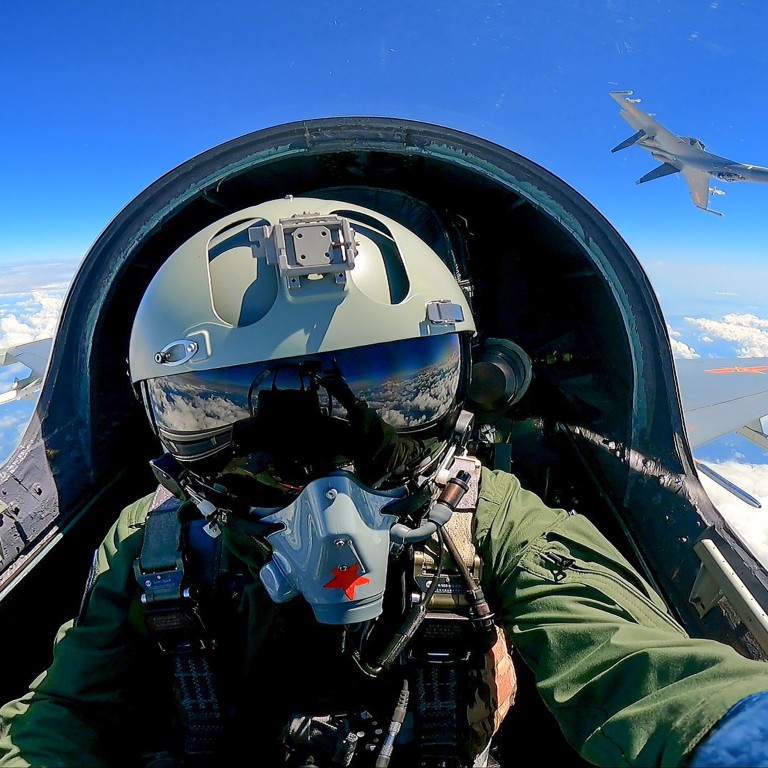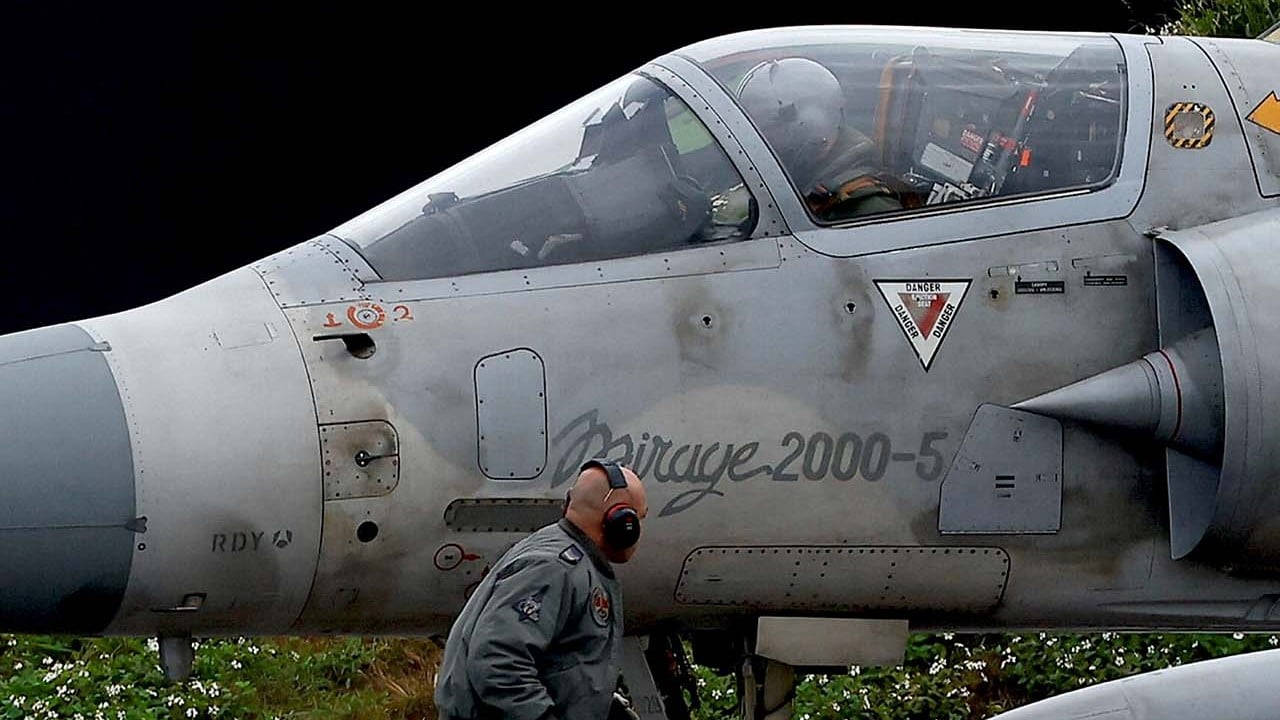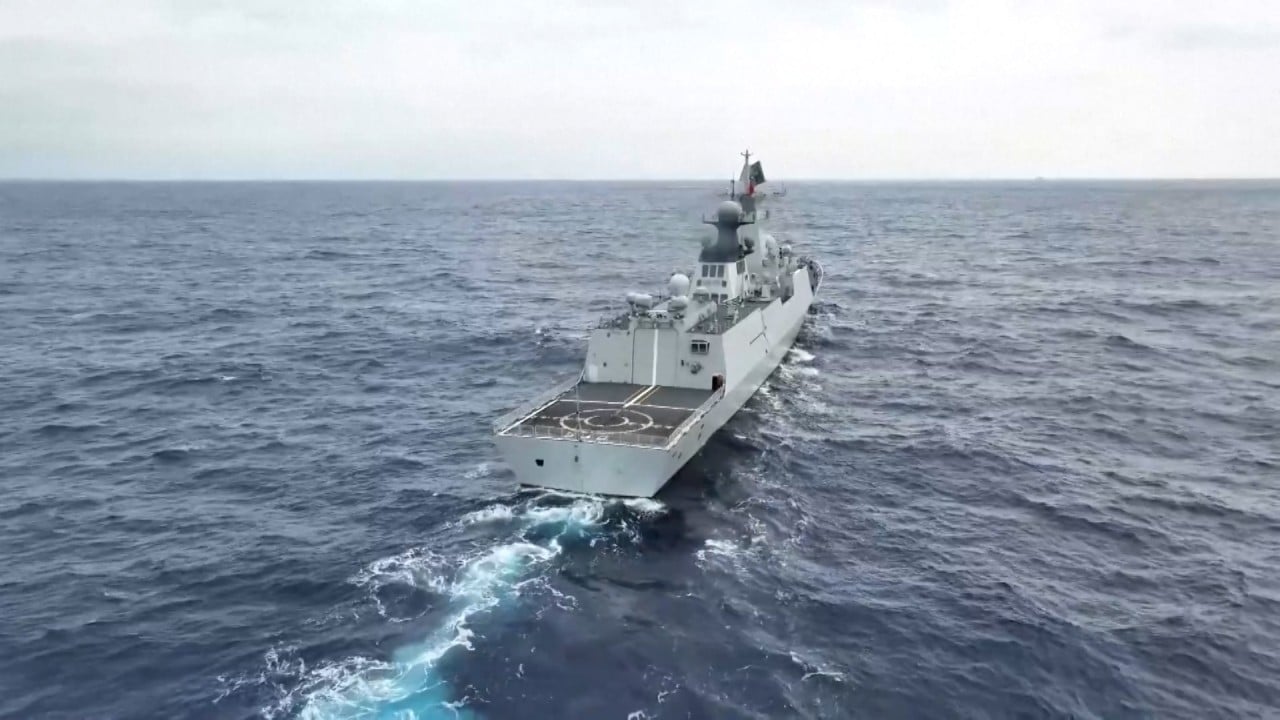
How Beijing’s sabre-rattling is fuelling US doubts over commitment to peaceful reunification with Taiwan
- Washington believes Beijing is leaning towards the stick rather than the carrot because of its increasingly tough stance, analysts warn
- Growing gulf between public opinion in Taiwan and mainland China may also be fuelling these concerns
“China’s announcements of policy consistency have failed to convince the United States that China’s actual policy considerations have not undergone major changes,” Zhao Tong, a senior fellow at the Carnegie Endowment for International Peace, said.
He said that from a US perspective there had been major changes in Beijing’s approach in recent years, with a greater emphasis on the “stick” rather than the “carrot”.
“For example, China’s previous official policy promised to let Taiwan retain its own military after reunification, but this commitment was withdrawn in its most recent statement,” Zhao said.
Wang Jianmin, a senior cross-strait specialist at Minnan Normal University in Fujian province, echoed those comments.
“The US is concerned that we are speeding up reunification, especially through the use of force … China continues to upgrade its military action to deter Taiwanese independence, which triggers the US assessment that Beijing is really getting ready to reunify with Taiwan by force, which creates a vicious circle,” Wang said.
But Zhao said this reinforced perceptions that Beijing was adopting a “tougher” stance at odds with Beijing’s insistence that it preferred a peaceful solution.
US experts joined review of Taiwan’s latest war games simulating PLA attack
Peaceful reunification has been a long-standing policy goal of Beijing and it has repeatedly been restated by Xi and in key policy documents since he came to power in 2012.
In August, an official white paper on Taiwan described peaceful reunification as the Communist Party’s “first choice”.
But both Zhao and Wang said that stance sounded increasingly hollow even to audiences on the mainland.
Xi repeated the commitment to peaceful reunification in a speech to the party’s national congress in October, but he also repeated another of Beijing’s long-standing positions: it will never renounce the use of force.
While the two goals sound similar, the former is widely seen as more defensive while the latter is more proactive.
“In addition, many Chinese scholars have admitted that fundamental changes in Taiwan’s public opinion make it less likely that Taiwan will voluntarily return to the mainland,” Zhao added.
The independence-leaning Democratic Progressive Party has won the last two Taiwanese presidential elections. Its support has, in part, been driven by increasing public opposition to reunification under a “one country, two systems” model – given developments in Hong Kong over the past four years.
Wang said: “The possibility of peaceful reunification is getting less. It is natural to prepare for non-peaceful reunification.”
In the past 12 months, the People’s Liberation Army has conducted two large-scale drills around Taiwan, triggered firstly by a visit to Taipei by former US House speaker Nancy Pelosi in August and then a meeting in California between her successor, Kevin McCarthy, and Taiwanese President Tsai Ing-wen in April.
The PLA has also sent warplanes close to the island on a near-daily basis and repeatedly entered its air defence identification zone – actions the US has characterised as “intimidation”.
Taiwan’s KMT to send delegation to mainland China forum despite warnings
Wang was pessimistic about the prospect that US Secretary of State Antony Blinken’s upcoming visit to Beijing would ease tensions in the strait, arguing “the US will not give up provocations” and will continue to “play the Taiwan card”.
“The Taiwan issue is … the most difficult historical problem of the country, it is hard to resolve. The fierce competition between China and the US over Taiwan issues will continue for quite a long time in the future,” he said.
The US does not officially recognise Taiwan as independent, but is opposed to any forcible change to the status quo and is legally committed to helping the island defend itself.



